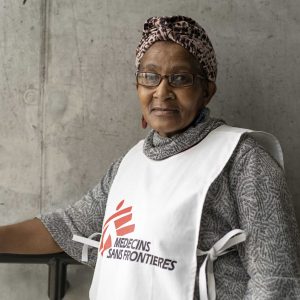Gauteng Covid-19 tsunami a warning for SA
The third wave has pummelled the country’s economic hub. It is likely a foretaste of what the Delta variant will do to a largely unvaccinated population.
Author:
8 July 2021

As a third wave of Covid-19 infections in South Africa eclipses the peak of the summer’s deadly second wave, it remains unclear why it has hit Gauteng so hard.
New infections in the province, which appear to have peaked at around 16 102 on 3 July, are beginning to subside. But Gauteng’s hospitals and mortuaries are likely only nearing the beginning of the wave.
It will take around two weeks before many of those infections become serious enough to start crowding out hospital beds, and about a week after that before some of them start dying. Excess deaths in the province, which are often considered a more accurate reflection of the path of the virus, were at 3 224 on 27 June according to the South African Medical Research Council, and show no signs of slowing yet.
Three horsemen
The defining feature of South Africa’s third wave so far is that it has been concentrated in the country’s economic and urban heartland. At the crest of Gauteng’s third wave of infections, the province accounted for more than 60% of all new infections in South Africa.
Covid-19 infections play out in a complex system of incomplete knowledge. Too big to be viewed in its entirety, the problem can only be understood in fragments of information.
Related article:
The National Institute for Communicable Diseases of South Africa has suggested that Gauteng’s relatively easy experience of the second wave of infections meant it was more vulnerable to a third. But the data informing many of the Covid-19-related decisions made by the office of Gauteng’s premier, David Makhura, suggest that three other key fragments of information go some way to explaining why the third wave has been so much worse in Gauteng.
The first two – levels of mobility and adherence to non-pharmaceutical interventions – relate to the nature of Gauteng’s powder keg in early June. The third – the advent of the Delta variant – is the match that was set to it.
The public and the pandemic
In early June, as the third wave began to swell, Gautengers were considerably more mobile than they had been during either of the first waves. Mobility data from Google show that they were more frequently at their places of work, taxi stations, parks and grocery stores.
And, according to Bruce Mellado, a professor at the University of the Witwatersrand’s school of physics who sits on Makhura’s Covid-19 advisory panel, this mobility came amid increased indifference to physical distancing and other non-pharmaceutical interventions designed to slow the spread of the virus.
Before the first wave of infections, when there were still only 101 new Covid-19 infections in Gauteng every week, there were 1 364 Covid-19-related tweets in English in the province. At the peak of the second wave, there were 589. But by the start of the third wave, as weekly cases began to soar over 80 000, there were only 193 Covid-19-related tweets in English. Mellado said that this decline in Covid-19 concerns on social media was likely matched by a more general decline in adherence to non-pharmaceutical interventions.
Related article:
Francois Venter, who is the deputy director of the university’s Reproductive Health and HIV Institute, however, said that any “blaming of the public’s behaviour for the waves of Covid-19 infections is, frankly, nonsense”.
The waves, whose timing is becoming increasingly predictable, are about more than crowding and disciplined mask-wearing, added the internal medicine specialist. Among the issues that Venter said require more attention is “the repeated hypocrisy of senior politicians from all major political parties in flouting rules and undermining vaccines”.
Venter, who said that “it is always easier to blame the public”, is one of a group of experts who recently repeated the warning that “the rollout of a vaccine programme remains the only sustainable means to protect the population against Covid-19 severe disease and death and return to some level of acceptable economic activity”.
Covid-19 infections accelerated at a relatively mild rate in early June. But a dramatic increase beginning around 9 June eventually led Mellado and others to warn that Gauteng’s “infection rates may be out of control” by 24 June. Two days later, the advent of the now-dominant Delta variant, which has resulted in sharp increases in mortality among populations with low vaccine rates elsewhere in the world, was announced.
Whatever the reason for Gauteng’s explosion of infections, Mellado and Venter agree that it is unlikely to remain an isolated occurrence. With the highly transmissible Delta variant now spreading among a mostly unvaccinated population, excess deaths are once again on a dramatic rise in the Free State, Northern Cape, North West, Mpumalanga and Limpopo.


